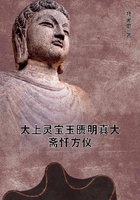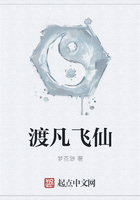But the salons were far from being centers of "plain living and high thinking." "Supper is one of the four ends of man," said Mme. du Deffand; and it must be admitted that the great doctrine of human equality was rather luxuriously cradled. The supreme science of the Frenchwomen was a knowledge of men. Understanding their tastes, their ambitions, their interests, their vanities, and their weaknesses, they played upon this complicated human instrument with the skill of an artist who knows how to touch the lightest note, to give the finest shade of expression, to bring out the fullest harmony. In their efforts to raise social life to the most perfect and symmetrical proportions, the pleasures of sense and the delicate illusions of color were not forgotten.
They were as noted for their good cheer, for their attention to the elegances that strike the eye, the accessories that charm the taste, as for their intelligence, their tact, and their conversation.
But one must look for the power and the fascination of the French salons in their essential spirit and the characteristics of the Gallic race, rather than in any definite and tangible form. The word simply suggests habitual and informal gatherings of men and women of intelligence and good breeding in the drawing-room, for conversation and amusement. The hostess who opened her house for these assemblies selected her guests with discrimination, and those who had once gained an entree were always welcome. In studying the character of the noted salons, one is struck with a certain unity that could result only from natural growth about a nucleus of people bound together by many ties of congeniality and friendship. Society, in its best sense, does not signify a multitude, nor can a salon be created on commercial principles.
This spirit of commercialism, so fatal to modern social life, was here conspicuously absent. It was not at all a question of debit and credit, of formal invitations to be given and returned.
Personal values were regarded. The distinctions of wealth were ignored and talent, combined with the requisite tact, was, to a certain point, the equivalent of rank. If rivalries existed, they were based upon the quality of the guests rather than upon material display. But the modes of entertainment were as varied as the tastes and abilities of the women who presided. Many of the well-known salons were open daily. Sometimes there were suppers, which came very much into vogue after the petits soupers of the regent. The Duchesse de Choiseul, during the ministry of her husband, gave a supper every evening excepting on Friday and Sunday. At a quarter before ten the steward glanced through the crowded rooms, and prepared the table for all who were present.
The Monday suppers at the Temple were thronged. On other days a more intimate circle gathered round the tables, and the ladies served tea after the English fashion. A few women of rank and fortune imitated these princely hospitalities, but it was the smaller coteries which presented the most charming and distinctive side of French society. It was not the luxurious salon of the Duchesse du Maine, with its whirl of festivities and passion for esprit, nor that of the Temple, with its brilliant and courtly, but more or less intellectual, atmosphere; nor that of the clever and critical Marechale de Luxembourg, so elegant, so witty, so noted in its day--which left the most permanent traces and the widest fame. It was those presided over by women of lesser rank and more catholic sympathies, of whom Voltaire aptly said that "the decline of their beauty revealed the dawn of their intellect;" women who had the talent, tact, and address to gather about them a circle of distinguished men who have crowned them with a luminous ray from their own immortality. The names of Mme. de Lambert, Mme. de Tencin, Mme. Geoffrin, Mme. du Deffand, Mme. Necker, Mme. de Stael, and others of lesser note, call up visions of a society which the world is not likely to see repeated.
Not the least among the attractions of this society was its charming informality. A favorite custom in the literary and philosophical salons was to give dinners, at an early hour, two or three times a week. In the evening a larger company assembled without ceremony. A popular man of letters, so inclined, might dine Monday and Wednesday with Mme. Geoffrin, Tuesday with Mme.















